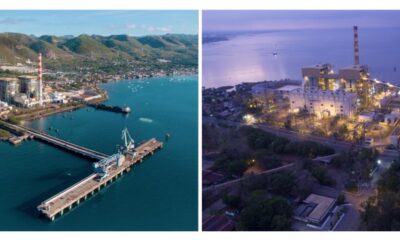Business
BPI Posts 12% Increase in Q3 Net Income
Bank of the Philippine Islands (BPI) posted P5.98 billion in net income for the third quarter of 2018, up 12% from P5.36 billion in the same period last year, led by 21% growth in net interest income.
For the first nine months of the year, net income reached P17.01 billion, flat versus last year. Comprehensive income was at P15.30 billion. Total revenues increased by 7.3% to P56.89 billion, on the back of 15.1% growth in net interest income, which reached P40.88 billion. The increase in net interest income was a result of a 9.4% increase in average asset base, and a 17-basis point expansion in net interest margin (NIM). Interest income from loans grew by 24.2% year-on-year as the yield on interest-earning assets improved by 37 basis points. This was partially offset by a 24-basis point increase in cost of funds due to higher time deposit rates and higher documentary stamp taxes (DST) on deposits.
On a quarter-on-quarter basis, NIM expanded by 14 basis points as a result of favorable loan repricing following the Bangko Sentral ng Pilipinas (BSP) policy rate hike earlier in the quarter. NIM continues its upward trend, steadily increasing to 3.24% in Q3, from 3.10% in Q2, and from 2.91% in Q1. This trend is reflective of the Bank’s proactive balance sheet and funding strategies in response to changes in the interest rate environment.
Total loans stood at P1.27 trillion, reflecting a 12.9% growth year-on-year, boosted by the strong growth in corporate loans and credit card loans at 13.7% and 22.0%, respectively. Total deposits reached P1.54 trillion, up by 2.5%, with current and savings accounts (CASA) registering faster growth at 6.4%. The Bank’s CASA ratio stood at 74.0% while the loan-to-deposit ratio (LDR) was at 82.2%.
Year-to-date, the Bank registered higher fee-based income from its credit card, deposit and rental businesses. However, lower securities trading gains, trust and investment management fees, insurance income and asset sales contributed to an 8.7% decline in non-interest income, to P16.01 billion from the P17.54 billion posted over the same period in 2017.
The Bank is nine months into its adoption of the PFRS 9 Expected Credit Loss models and reporting under BSP Circular No. 941. Provision for loan losses over this period total P2.84 billion, 21.2% lower year-on-year, indicative of the asset quality of the Bank. Meanwhile, the NPL ratio increased slightly from 1.80% in June 2018 to 1.82% in September 2018, with a reserve cover ratio of 95.7%.
Operating expenses totaled P32.08 billion for the first nine months of 2018, an increase of 15.2% yearon- year, driven by higher spending in manpower, premises and technology. The Bank’s commitment to serve self-employed micro-entrepreneurs through BPI Direct BanKo’s growing network of branches (from 52 last year to 145 this year) contributed to the increase in facilities and headcount expenses.
The Bank’s ongoing implementation of its digital strategy also increased technology costs. Cost-to-Income ratio was at 56.4% as of September 2018, up from 52.5% in the previous year. Return on Equity (ROE) was 10.4%, lower by 2.7 percentage points, and Return on Assets (ROA) was 1.2%, lower by 0.12 percentage points, compared to the same period in 2017.
The Bank’s securities holdings totaled P335.11 billion, up 13.0% year-on-year. About 84% of the securities portfolio was in Hold-to-Collect, and thus less exposed to market volatility.
At the end of September 2018, the Bank’s total assets stood at P1.96 trillion, up by 8.9%, while total capital reached P245.93 billion, up by 37.4% on account of the May 2018 stock rights offering. Capital Adequacy Ratio (CAR) was at 16.99% and Common Equity Tier 1 Ratio (CET1) was at 16.09%.
In August, the Bank successfully raised USD 600 million in the international bond market, the largest issuance of a Philippine bank in the offshore debt market. The five-year senior unsecured fixed rate S note issuance with a coupon rate of 4.25 percent was the maiden drawdown under BPI’s $2 billion medium-term note programme. The bond was listed on the Singapore Stock Exchange with a Baa2 rating assigned by Moody’s Investor Service.
In July 2018, the AC Nielsen study revealed that BPI has one of the highest corporate equity ratings in the Philippines and the highest corporate equity rating among Philippine banks, citing stability, integrity, and trust as the attributes most associated with the company.
































